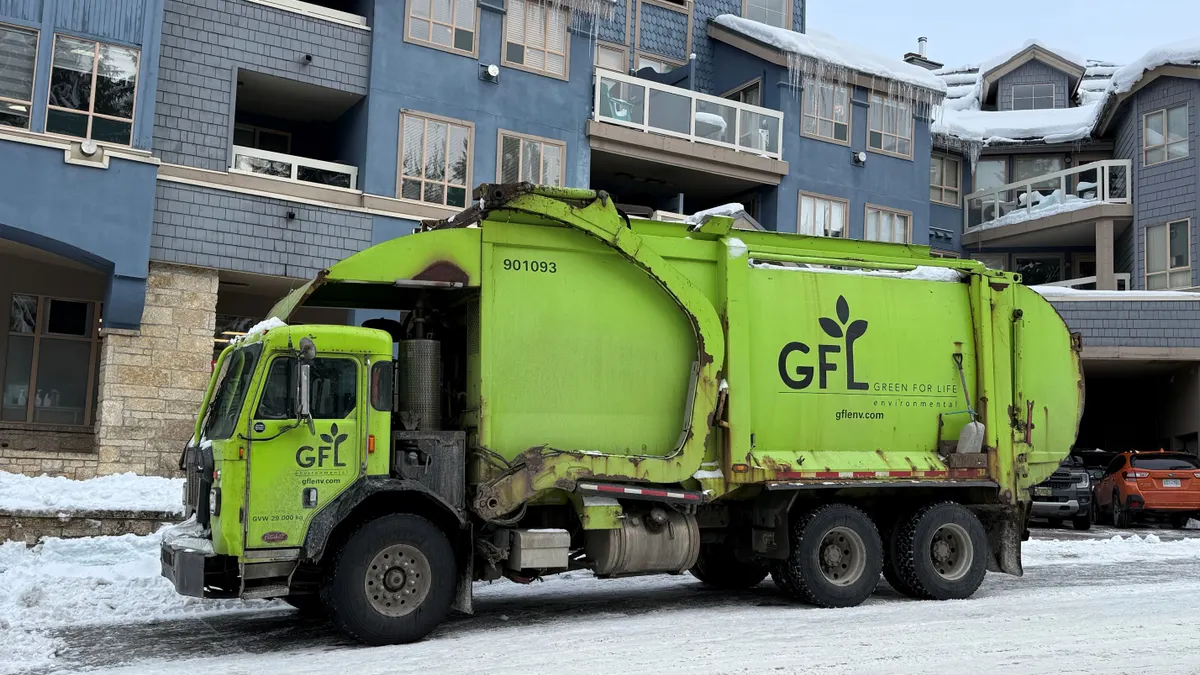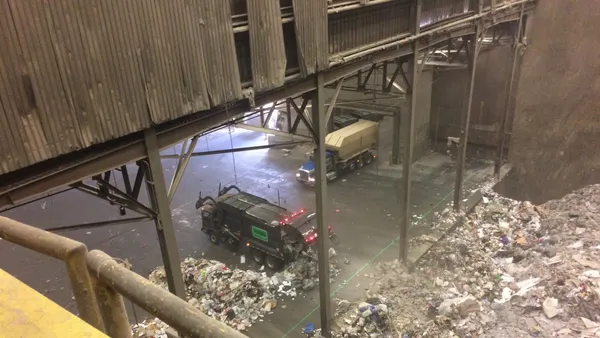Dive Brief:
- Major U.K. grocery chain Sainsbury's has scrapped its goal of helping consumers cut their food waste in half by 2030 after deciding it is likely unattainable, as reported by The Guardian.
- Last year, the company launched a £10 million (approx. $12.6 million USD) campaign called "Waste Less, Save More" focused on the issue. This included free food-tracking apps, refrigerator thermometers, communal fridges, cooking classes and other educational tools to change consumer habits. Though after a one-year trial in the town of Swadlincote the company realized this would be harder than expected.
- Sainsbury's still plans to continue working on food waste issues and will be conducting a trial in one London district to measure food waste reduction efforts in a more densely populated area. The U.K. waste advisory nonprofit WRAP will evaluate the trial and publish results in May.
Dive Insight:
Nearly half of the estimated 15 million metric tons of food waste created per year in the U.K. comes from households, costing the average family about £700 per year. Spurred in part by the U.N. Sustainable Development Goal of halving food waste by 2030, multiple campaigns have been launched in the U.K. and at least one European Union official has called the current situation "unethical and immoral."
Both in the U.K. and the U.S. more companies have begun to recognize the economic value of updating their own practices to cut down on waste. According to a new report from WRAP and the World Resources Institute, companies are seeing an average $14 return on investment for every $1 they spend on food waste reduction. Yet when it comes to consumer education the business case may be less obvious. For some companies, it may not be worth expending the resources and brand capital to reach for a goal that they can eventually be criticized for not achieving.
While Sainsbury's is taking some heat for their realistic assessment of achieving the 2030 goal, they may not be the last ones to reach the same conclusion between now and then. A host of initiatives are currently underway to reach the same goal in the U.S. yet all involved readily admit that they face an uphill climb. Though that doesn't mean municipal projects, ongoing research and various legislative efforts aren't worth pursuing. Like many of the "zero waste" goals set by cities the inspiration may be more important than the reality when it comes to facing such a massive issue.












